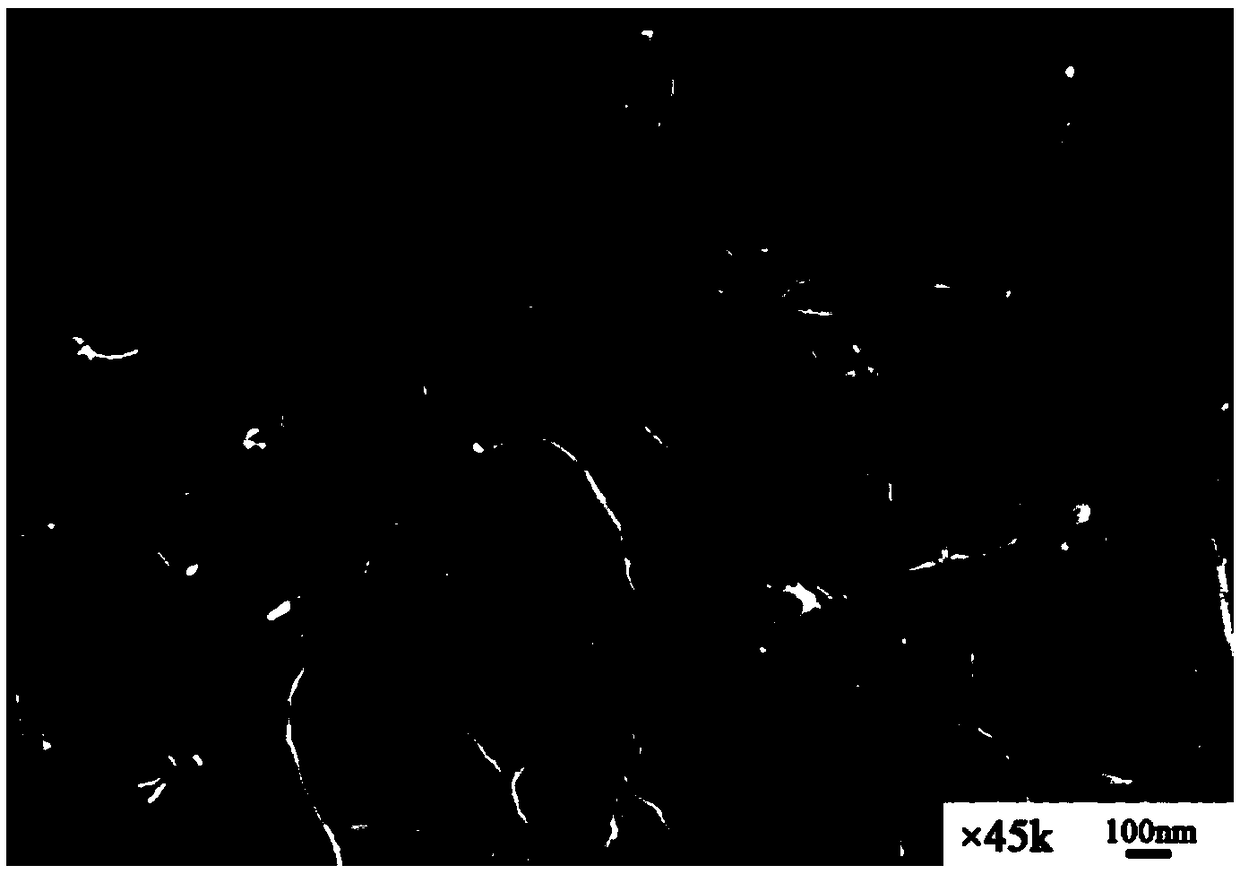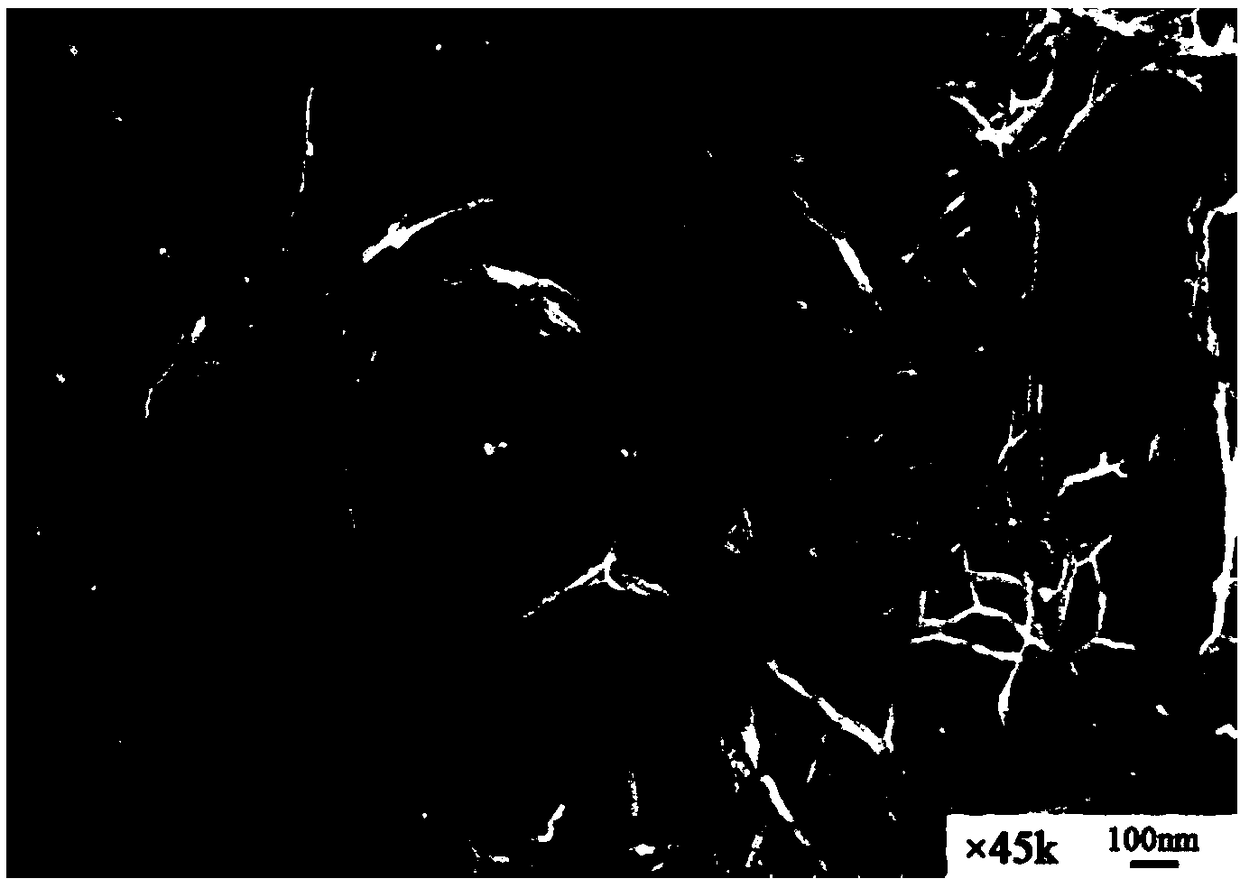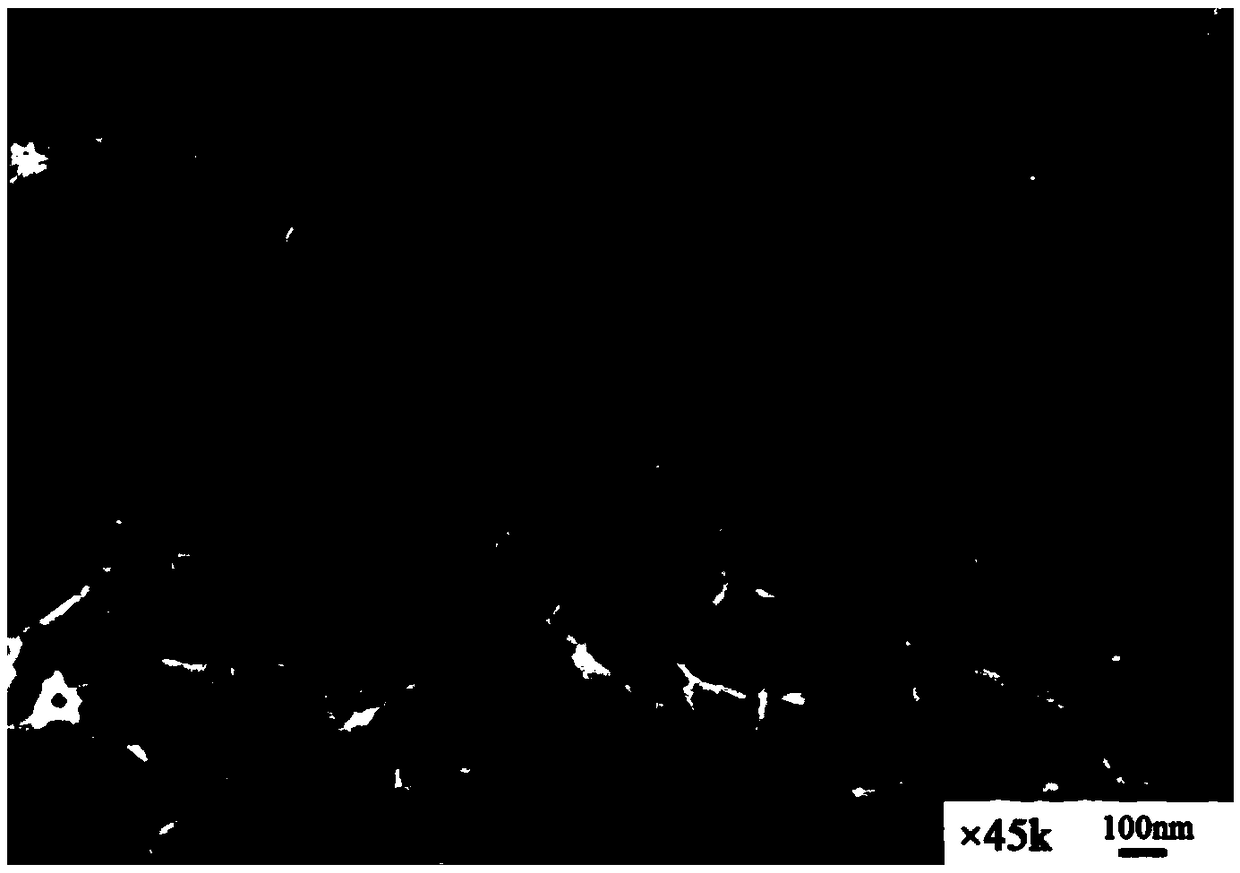Method for preparing cellulose nano filaments with pretreatment of low-eutectic solvent
A technology of deep eutectic solvent and nanofibrils, which is applied in cellulose raw material pulping, cellulose pulp post-treatment, fiber raw material treatment, etc., can solve the problem of high processing cost, environmental pollution of reaction products, and restrictions on large-scale commercialization of CNF Production and other issues, to achieve the effect of simple operation, environmental friendliness and low cost
- Summary
- Abstract
- Description
- Claims
- Application Information
AI Technical Summary
Problems solved by technology
Method used
Image
Examples
Embodiment 1
[0053] (1) Oven drying: oven-dry poplar finished chemical pulp at 40-45°C for 6-7 hours;
[0054] (2) Deep eutectic solvent treatment: the deep eutectic solvent synthesized by choline chloride and urea with a molar ratio of 1:2 was put into a molten state in an oil bath at 100°C, and the dried poplar chemical pulp was added for constant temperature treatment for 2 hours. Obtain mixed solution, wherein the massfraction of poplar chemical pulp in mixed solution is 1%;
[0055] (3) Poplar chemical pulp fiber after separation treatment: after deep eutectic solvent treatment, water is added in the reaction system to terminate the reaction, and then the poplar chemical pulp fiber in the mixed solution is separated;
[0056] (4) High-pressure homogeneous micro-jet treatment: the poplar chemical pulp fiber isolated in step (3) is mixed with a pulp concentration of 0.3%, and then processed by high-pressure homogeneous micro-jet, and the number of times of treatment is 5 times;
[0057] ...
Embodiment 2
[0060] (1) Oven drying: oven-dry poplar finished chemical pulp at 50-55°C for 5-6 hours;
[0061] (2) Deep eutectic solvent treatment: the deep eutectic solvent synthesized by choline chloride and urea with a molar ratio of 1:2 was put into a molten state in an oil bath at 100°C, and the dried poplar chemical pulp was added for constant temperature treatment for 2 hours. Obtain mixed solution, wherein the massfraction of poplar chemical pulp in mixed solution is 1%;
[0062] (3) Poplar chemical pulp fiber after separation treatment: after deep eutectic solvent treatment, water is added in the reaction system to terminate the reaction, and then the poplar chemical pulp fiber in the mixed solution is separated;
[0063] (4) High-pressure homogeneous micro-jet treatment: the poplar chemical pulp fiber isolated in step (3) is prepared into a pulp concentration of 0.3%, and then processed by high-pressure homogeneous micro-jet, and the number of treatments is 10 times;
[0064] (5...
Embodiment 3
[0067] (1) Oven drying: oven-dry poplar finished chemical pulp at 60-65°C for 4-5 hours;
[0068] (2) Deep eutectic solvent treatment: the deep eutectic solvent synthesized by choline chloride and urea with a molar ratio of 1:3 was put into a molten state in an oil bath at 110°C, and the dried poplar chemical pulp was added for constant temperature treatment for 2 hours. Obtain mixed solution, wherein the massfraction of poplar chemical pulp in mixed solution is 1%;
[0069] (3) Poplar chemical pulp fiber after separation treatment: after deep eutectic solvent treatment, water is added in the reaction system to terminate the reaction, and then the poplar chemical pulp fiber in the mixed solution is separated;
[0070] (4) High-pressure homogeneous micro-jet treatment: the poplar chemical pulp fiber isolated in step (3) is mixed with a pulp concentration of 0.3%, and then processed by high-pressure homogeneous micro-jet, and the number of times of treatment is 15 times;
[007...
PUM
| Property | Measurement | Unit |
|---|---|---|
| Particle size | aaaaa | aaaaa |
| Particle size | aaaaa | aaaaa |
| Particle size | aaaaa | aaaaa |
Abstract
Description
Claims
Application Information
 Login to View More
Login to View More - R&D
- Intellectual Property
- Life Sciences
- Materials
- Tech Scout
- Unparalleled Data Quality
- Higher Quality Content
- 60% Fewer Hallucinations
Browse by: Latest US Patents, China's latest patents, Technical Efficacy Thesaurus, Application Domain, Technology Topic, Popular Technical Reports.
© 2025 PatSnap. All rights reserved.Legal|Privacy policy|Modern Slavery Act Transparency Statement|Sitemap|About US| Contact US: help@patsnap.com



